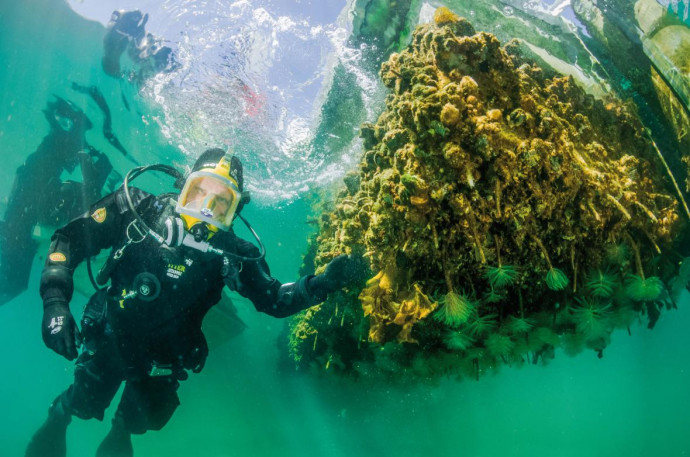News
Published 27 March 2018NIWA launches new competition to tackle marine pests

Biosecurity scientists are seeking 'out of the box' ideas to help control marine pests and will pay a cash prize of $10000 for the winning ideas. The competition runs until 10 May and is open to anyone.
Dr Graeme Inglis, Project Leader and NIWA marine biosecurity expert says eradicating or controlling a population of invasive marine species is an extremely difficult task and that new thinking is urgently needed.
“Invasions by non-native marine species are a growing problem for coastal ecosystems all around the world. They can have dramatic effects on native biodiversity, marine industries and recreation.” Dr Inglis says.
“Attempts to eradicate marine pests or reduce their abundance have so far relied mostly on divers or shore-based observers spotting and removing them. This is labour intensive, expensive and often unsuccessful, meaning that the pests and their impacts are here to stay.”
For an effective solution to manage these underwater pests over large areas; species-specific and cost-efficient ideas are being sought from a dynamic new range of brains.
"Finding a pest and killing or neutralising it without harming our native marine ecosystem is difficult." says Dr Inglis. "We need solutions that are sensitive to and effective on particular pest species, but which will not degrade the environments we are trying to protect.”
Two technical aspects of the challenge are the requirement to be able to accurately locate the pests underwater, and to develop an acceptable way of either killing them or preventing reproduction. One tip Dr Inglis gives would-be solvers is that potential ideas could involve targeting a particular part of a pest species lifecycle, since pests in the egg or larvae stage can be at their most vulnerable.
The challenge is open to experts and innovators from all backgrounds, including those who don’t normally work in marine settings.
“Someone may have developed technology for other applications but never thought of its application for biosecurity – they’re the kind of people we want to try to bring in to solve this problem.” says Dr Inglis.
To enter the competition, head to InnoCentive, a crowd-sourcing platform which connects organisations seeking solutions with over 380,000 registered 'solvers'. The competition is open for submissions until 10 May with the winner to be announced 22 June. The judging panel will include top scientists from:
- NIWA
- Cawthron Institute
- University of Waikato
- Australian Government Department of Agriculture and Water Resources
- Government of Western Australia Department of Primary Industries and Regional Development
- Fisheries and Oceans Canada
- Smithsonian Institute's Environmental Research Centre
For more information on entering
